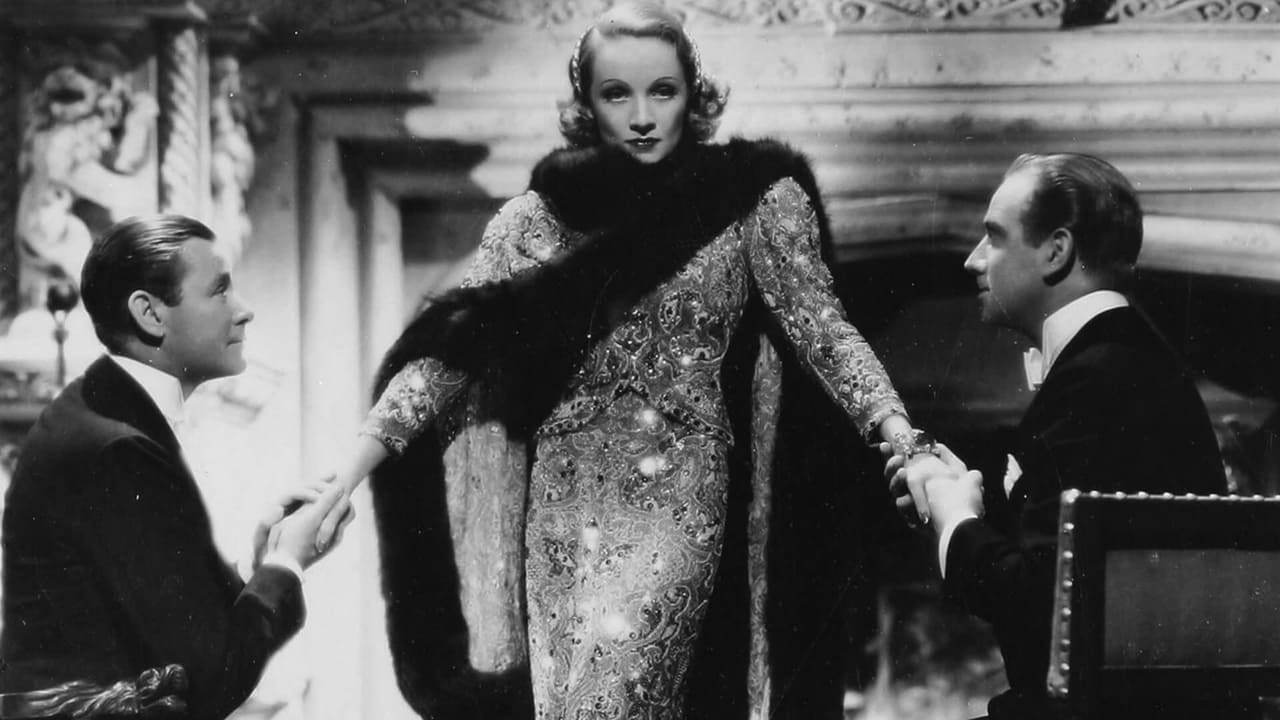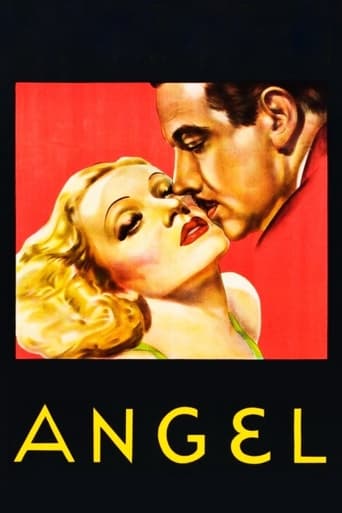



Clever and entertaining enough to recommend even to members of the 1%
View MoreEasily the biggest piece of Right wing non sense propaganda I ever saw.
View MoreThe movie is made so realistic it has a lot of that WoW feeling at the right moments and never tooo over the top. the suspense is done so well and the emotion is felt. Very well put together with the music and all.
View MoreGreat movie. Not sure what people expected but I found it highly entertaining.
View MoreI've seen all of Lubitsch's films and I rate Angel as his worst. The faults are in a bland repetitive script and the strangely ambiguous, wooden performance of Marlene Dietrich. There are times she appears more masculine than her costars Melvyn Douglas and Herbert Marshall.The sexual playfulness and subtle daring - so delightfully evident in Lubitsch's other films - here often fall flat. Made a few years before Angel, one of Ernst Lubitsch's best films, also based on a play (Noël Coward's Design for Living), has a woman at the center of a love triangle. The shock, particularly for a 30s Hollywood movie, is that the three live together in a bohemian Paris flat. In his directing, as well as the performances of Frederic March and Gary Cooper, there is never a hint of homo-eroticism. Ironically in Angel the best scene, a climactic one between Douglas and Marshall, is full of sexual energy.Subtle sophistication was always an Ernst Lubitsch trademark. There is little evidence of sparkling wit and originality in Angel.
View MoreThis is a Dietrich film, her last starring role at her home studio, Paramount. She is supported by 2 of the top Hollywood leading men - Douglas and Marshall - and dressed sumptuously by Travis Banton. The film should have been a money-maker for its studio, but apparently it was too sophisticated for the small-town public and she became 'Box Office Poison' after its release. Variety, in its disparaging but humorous review, said that you could hang coats from Dietrich's eyelashes. I attentively kept an eye on those eyelashes and have to admit that they ARE long, but not long enough to hang a coat on.I liked this film. I especially liked Dietrich's aristocrat diplomat husband - Marshall - devoted to duty to fend off WW2. And I liked Dietrich. She has servants who attend to all personal and household tasks and therefore she has nothing to do. She is bored. She flies to Paris and has a romantic evening with a stranger - Douglas - a piano playing playboy who is infatuated with her. In the end she chooses the man who is the only one who can give her the happiness she craves. Females can learn a trick or 2 or more re how to attract and keep a man from closely observing Dietrich in this film. In what was once common terminology, she is a "man's woman." How times and the culture have changed.BTW, 'Angel', although it has bits of comedy supplied by the servants, is not a comedy, but is instead a light-hearted, sophisticated marital drama.
View MoreImagine a movie set in Paris directed by Ernst Lubitsch, the masterful director of such Parisian sexual innuendo comedies as Ninotchka, The Love Parade, The Merry Widow (1934 version), One Hour with You, and Design for Living. Imagine as the male lead Melvyn Douglas, who was so great in Ninotchka. Imagine as the female lead one of the great European stars of the cinema, a magnificent beauty like Garbo or Dietrich. Imagine that it concerns a Russian countess living in exile in Paris.But don't imagine that it's another Ninotchka. Far from it. It's Angel, in which all those ingredients that two years later would go to make one of the great Hollywood comedies, with Garbo and Douglas directed by Lubitsch, instead made for one very dull semi-comedy.Where to put the blame? The script, certainly, which isn't funny and never seems to know where it's going. Are we supposed to sympathize with Dietrich's character because she's abandoned by her husband, or condemn her for considering infidelity? The men at Paramount who approved it, and who should have spotted a bomb in the making. It is seldom funny. We seldom care about the characters. (Why did Paramount keep starring Herbert Marshall in pictures? He is just not interesting.) One or two scenes are mildly clever, which was probably Lubitch's doing. The rest verges on stale melodrama. The end isn't convincing.Taken all together, I'd say forget it. This is one Angel that never takes flight.
View MoreThe Lubitsch touch is omnipresent in this relatively unknown but extraordinary romantic comedy. The theme of a potential marital infidelity of a disaffected upper class wife (a gleaming Marlene Dietrich) is dealt with unusual sophistication and insight, building up slowly to a brilliant denouement, while the core dilemmas and the predicament of the main character are continuously and subtly underscored. The confrontations between the characters are a delight of restrained pathos, whereas Lubitsch, unsurprisingly, perfectly recreates a confined world of rigid social norms that suppresses any emotional profusion. All the performances are top notch, the secondary characters are equally memorable and the whole film is pervaded by the genius of one of cinemas most charismatic directors, Ernst Lubitsch. One wishes that modern romantic comedies had only maintained even a fraction of the wit and incisiveness that Lubitsch established as a norm in the 30s.
View More